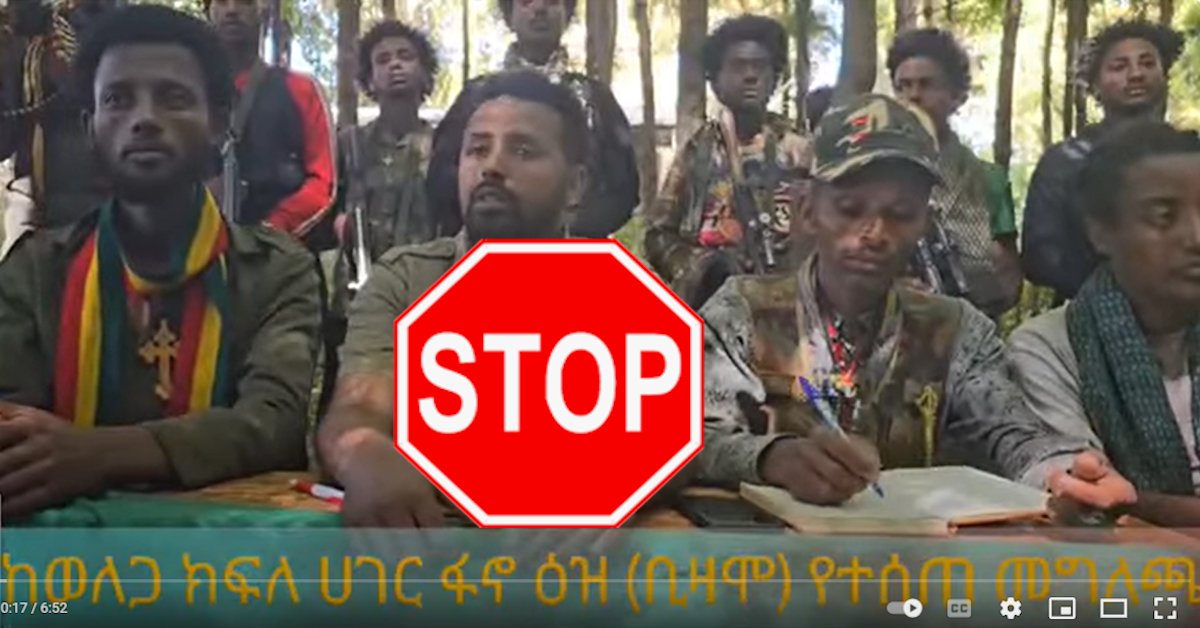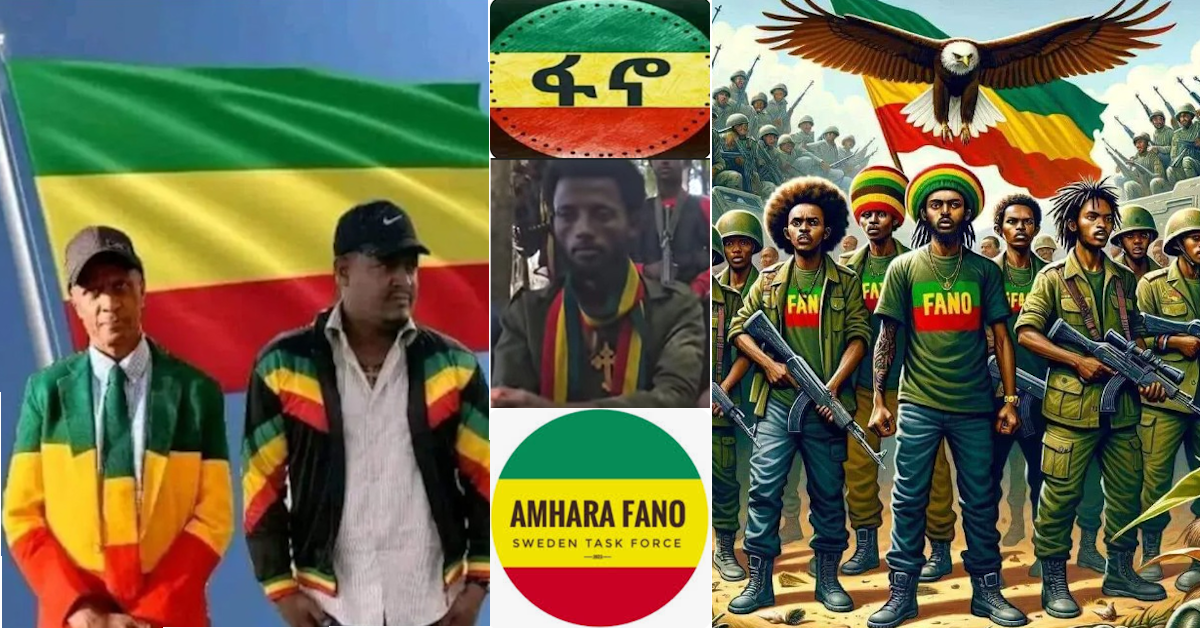BIG LIE #1: The History of 3000 Years
Ethiopia’s purported 3000-year history is a myth perpetuated by politicians and vested interests. Contrary to actively popularized belief, the name “Ethiopia” is a relatively recent development, emerging less than a century ago. It was Emperor Haile Selassie’s first Constitution promulgated in 1931 that recognized Ethiopia as the official name of the country. Before its internationally recognized rebranding following World War II, it was referred to as Abyssinia. Notably, the name “Ethiopia” does not appear in the records of the League of Nations, the first global intergovernmental organization established on January 10, 1920. Instead, it was registered as Abyssinia when it joined the League on September 28, 1923.
It is worth noting that while Abyssinia, particularly its northern regions, may indeed boast a history spanning 2000 years, starting with the Axumite Kingdom during the first Christian century, the Axumite Kingdom did not expand to most of the southern and eastern and western parts of what is today Ethiopia. In fact, the southern regions of Ethiopia were annexed through Emperor Menelik’s brutal colonial conquest during the 1880s and 1890s. Therefore, the historical narrative that may apply to Abyssinia does not encompass the entire territory of modern-day Ethiopia, and simply a falsehood pushed into public consciousness.
BIG LIE #2: Ethiopia Was Never Colonized
BIG LIE #3: Ethiopia Is Just a Country Like Any Other
BIG LIE #4: The Christian Island
BIG LIE #5: The Land of Heroes and Black Freedom
You only need to look at the recent inauguration of the Adwa Museum and the 128th anniversary of the Adwa victory to understand this point. Many lies have been told amounting to rewriting of history. Although Italy was defeated at Adwa in 1886, that gave Menelik the leverage to annex and extend his domains beyond Abyssinia through brutal conquests. While it may be a cause for celebration for some, it sparks immense resentment, among others. There is no consensus or shared history regarding the Adwa victory.
Moreover, Ethiopia has a dark history of slave trade and poor race relations. To witness this firsthand, one need only look to South Africa, where descendants of the Oromo slaves traded by Menelik can be found. For further insight, Dr Sandra Rowoldt Shell’s book, “Children of Hope: The Odyssey of the Oromo Slaves from Ethiopia to South Africa,” provides valuable documentation. Despite the narratives often heard about Ethiopia, its racial dynamics remain largely unexamined on a global scale. It is not an exaggeration to assert that Ethiopia may be among the most racially divided nations on Earth.
The country requires substantial intervention to address its past atrocities and rectify its injustices. It is a nation where egregious crimes have been committed, where blacks subjugated and enslaved other blacks, and where unspeakable acts of genocide were perpetrated against other black communities. The gravity of these crimes is such that they are remembered through descriptive historical names such as Calii Calanqoo, Harma Muraa Anolee, and Calii Tuulamaa, to mention a few.
This is not even mentioning the recent sad events, such as the Irreechaa Massacre of nearly 700 people in Bishoftu in 2016. Additionally, as a result of the Somali-Oromo conflict incited by the sheer belligerence of the administrator of the Somali region, Mr. Abdi Mohamoud Omar (aka Abdi Iley), over 10,000 killings and the displacement of 1.2 million Oromos occurred in eastern Ethiopia between 2017 and 2018. Regrettably, despite the change in government in 2018 with great expectations to provide radical solutions, little has been done to address the plight of these displaced individuals, who continue to endure harsh living conditions in temporary settlements, with no prospects of returning to their villages.
BIG LIE #6: Ethiopia of Common History
This assertion is entirely false, and the previous points debunk this falsehood. While certain regions, such as the southern or northernmost parts due to geographic proximity, may share some common culture and history, Ethiopia is by no means monolithic as the big lie suggests. Each ethnic group, nationality, and nation within the empire possesses its own proud history and heritage.
Through the implementation of genuine federalism and good governance, Ethiopia has the potential to leverage this diverse mosaic to its advantage. However, promoting a narrative of a common history is not only deceptive but also disingenuous. Instead of confronting its bitter truths, revisionists intoxicated by events like the Adwa Museum inauguration are actively rewriting history and altering the school curriculum to suit their agenda.
The Persisting Challenges:
In short, the significant challenge lies in addressing the root causes that have allowed the propagation of the BIG LIES: the courage to confront the truth and devise a peace-making and reconciliation plan with a genuine chance of lasting success. The culture entrenched within the historically privileged elites is characterized by a toxic combination of Hubris and Ignorance, where denialism reigns supreme. They adamantly dismiss ethnic-based federalism as the source of societal ills and advocate for its elimination, effectively advocating for maintaining the status quo that has persisted for a century and a half. Meanwhile, community leaders and elders, as well as lawmakers, are silenced by fear of repercussions, unable to openly express their true thoughts.
Even institutions like the peace and reconciliation commission lack bold and transformative ideas, as they adhere to an Ethiopianist agenda out of fear of exploring uncomfortable truths. Consequently, the aggrieved groups on the opposite side are unfairly labeled as troublemakers and even designated as terrorist organizations. Thus, Ethiopia is denied the opportunity to confront its harsh realities and grapple with its demons to achieve lasting peace. This status quo must change.
Only through sincere self-reflection and a steadfast commitment to justice and equality can Ethiopia break free from the deceptive foundations that bind it and pave the way toward a brighter future. The persisting challenges in Ethiopia demand a paradigm shift towards acknowledging uncomfortable truths, fostering genuine reconciliation, and empowering marginalized voices.
A Way Forward?
In the Ethiopian empire, short of full independence for those poised to consider it, it is evident that true Federalism stands as the sole arrangement capable of maintaining Ethiopia within its boundaries. The solutions must emerge from confronting harsh realities; mere superficial solutions will not suffice.
In the arduous pursuit of truth, acknowledging reality may evoke profound apprehension for some, yet for others, it is the only pathway to justice. Embracing truth alone can establish a lasting foundation; anything less will perpetuate turmoil indefinitely.
The Case of the Oromo Struggle:
Addressing the long-standing Oromo political situation is of paramount importance, given its overdue nature and significance as an economic hub with potential repercussions on the broader region. The progressive resolution of the Oromo case also holds promise for resolving similar political stalemates in other regions, carrying various positive implications.
Contrary to addressing the Oromo issue, recent government narratives suggest a disappointing backtrack. Through their spokesperson, Birhanu Jula, who doubles as a soldier and politician, the Prosperity Party (PP) government now claims to have resolved the Oromo questions and even goes as far as characterizing OLA freedom fighters as rogue groups. What tangible actions has this government taken regarding the Oromo questions since assuming power in 2018, following the Oromo Protests of 2014-2018?
The exposure of the “Koree Nageenyaa” killing squad by Reuters investigative reporting (Feb. 23, 2024) serves as confirmation of the government’s actions concerning the Oromo case. They have been involved in burning Oromo dwellings, incarcerating, and killing thousands of Oromos, even executing family members of freedom fighters to discourage others from joining OLA. The cold-blooded murder of fourteen Karraayuu Abbaa Gadaas by the “Koree Nageenyaa” killing squad, perpetrated during the most revered ceremony, as unearthed by Reuters investigative reporting, stands as a somber chapter in Oromo history.
In summary, the events since 2018 have been unprecedented, with the PP government committing more atrocities and heinous crimes in five years than preceding regimes did during their decades-long reigns. For those labeling this government as an “Oromo Government”, reconsider. While they may speak the Oromo language, they are arguably the most anti-Oromo government, betraying the Oromo people to cling to power.
The government’s laughable narratives are rooted in a desperate grasp for power at any cost, disregarding efforts to mitigate chaos and facilitate negotiation for lasting peace. They urge patience until the next election cycle, as if the previous one was fair and transparent, despite incarcerating all opposition candidates to present themselves as the sole candidates in Oromia.
Furthermore, recent actions demonstrate the Prime Minister assembling elders and community leaders and blaming them for harboring OLA fighters. He claims readiness for negotiation, shifting blame onto others for the lack of peace talks. A government with control over banks and military resources, including drone strikes in marketplaces, accuses freedom fighters of disrupting developmental programs in conflict areas. The PM demands that community leaders produce all freedom fighters for negotiation, insinuating they are complicit in hiding them.
It is disheartening to witness the power-hungry PP politicians exacerbating the Oromo issue rather than acting as solution architects. The sentiment echoed by many within the Oromo community is clear: there can be no lasting peace within the Ethiopian empire without genuine recognition of the Oromo people’s right to self-determination. The younger generation, fueled by a desire for justice and autonomy, stands resolute in their demand for a political settlement that respects the fundamental rights of the Oromo people. Any attempt at reconciliation or negotiation that falls short of addressing this core demand is bound to be met with continued resistance and unrest. It is imperative for the Prosperity Party government to acknowledge and engage meaningfully with the aspirations of the Oromo people if they truly seek a path towards lasting peace and stability in Ethiopia.

